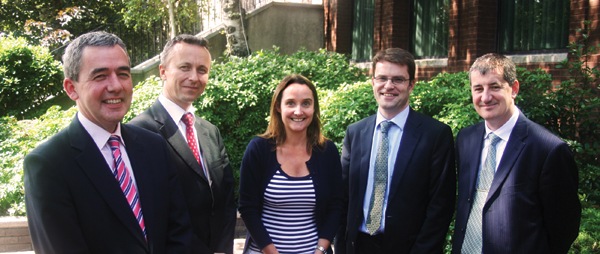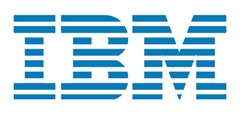Smarter Government by IBM
Kevin McGowan, IBM Public Sector Lead in Ireland, speaks to eolas about smarter government and which areas of the public sector reform could deliver the most benefits.
IBM has seen, both globally and locally, that all governments have been challenged by the financial crisis of recent times. The challenge to do ‘more for less’, emerged in 2008 with the financial crisis and has become much more acute for governments since the debt crises of mid- 2010. “When we look at our global government clients, the pressure is not just on reducing the deficit in terms of its absolute percentage of GDP but the markets also want governments to fix the deficit quite quickly,” observes McGowan.
The issue of how quickly deficits can be reduced is currently being debated in government and in the media. Ireland has signed a Memorandum of Understanding with the IMF-EU and the ECB that commits it to specific spending targets within a particular timeframe. That, in itself is a challenge; it is not just the scale of the reduction but the speed of the reduction. McGowan highlights that “The fact that we are so interconnected has exacerbated the global financial crisis, but leveraging this interconnected world is perhaps also part of the solution”.
IBM has observed over the last three or four years that the world is becoming increasingly “instrumented and interconnected which is generating vast amounts of data. Applying intelligence to this data, with analytics in particular, we can create valuable new insights to help governments meet their current challenges. We call this ‘smarter government’,” states McGowan.
Smarter Government
For McGowan the key aspect of Smarter Government is “finding success in reorienting their structures, information technology and policies to deliver more citizen centric services in a cost efficient manner“. Traditional models of government consist of functional and departmental silos with “static data”. However, this data is increasingly becoming dynamic and interdependent as can be seen with the move in some countries towards the development of integrated electronic health records. With the advances in computing power and data storage that are now available – together with technologies that allow organisations to join up real-time data; governments can apply analytics to improve service delivery and reduce cost.
IBM has examples of this from within the public sector in Ireland and across the world. “In transport, we are working with Dublin City Council through our ‘smarter cities’ initiative; in water management we’ve worked with the Marine Institute on ‘Smartbay’ in Galway Bay; and in health care we are working with many clients in a number of countries to help make health care provision sustainable”.
One trend that McGowan sees is that governments are expecting to realise benefits from reforms much more quickly.
Against the backdrop of economic turmoil, IBM has also recognised the need to have potentially new engagement models with government. “The days of large capital spends are restricted and IBM has other models that are intended to demonstrate quick benefit realisations for government by sharing the risk and rewards on projects.”
Immediate Focus
When asked to look across government and highlight the areas where the most return could be gained from any reforms, he replies: “From our point of view, and particularly looking at the Programme for Government, there are a number of key focus areas.
In terms of short term reform initiatives IBM sees five main areas of opportunity for government: process standardisation; shared services; procurement; accountable healthcare; and fraud and error management
One of the first things government should look at is the standardisation of processes, especially in the area of back office operations. For example, McGowan believes that “there is no reason why accounts payables processes can’t be standardised”. IBM has knowledge and capability that is built into our workflow software that helps realise the benefits quickly. “With standardisation you can drive down costs and create the opportunity to adopt shared services” he adds.
McGowan believes the next logical step is to look at shared services, which can cover areas such as back office processing and IT operations. There is a plan within government to implement shared services, and “again, benefit realisation is critical. We would encourage the adoption of shared services and believe that private sector experience could help accelerate the timeline”.
Given the scale of public sector procurement McGowan believes “there is need to aggregate and leverage the total government spend to improve value for money. We have worked with many global clients, including government organisations, who have done this and who have seen tremendous benefits by acting with speed and realising those benefits quickly.”
“In health care we have a very strong point of view around accountable and shared care, which is aligned to the government’s objective of shifting the focus of care to the primary care setting.” IBM believes that if the centre of gravity is shifted towards primary care then health care will be more sustainable. “Chronic diseases such as asthma or diabetes are increasingly being managed though the use of care pathways across the continuum of care. IBM has provided solutions to help clients manage this complex environment and to measure the target outcomes both clinically and financially. An example of this is what we have done for the management of diabetes in Denmark.”
The management of fraud and error is a global issue for governments. “For example in the area of social welfare programmes, Governments are under political and financial pressure to ensure that the allocated spend goes to those who are entitled to it. IBM has worked with many organisations internationally, leveraging our technology to reduce the level of fraud and error. McGowan states “IBM’s intelligent analytics solutions help governments to enhance the integrity of social programmes by improving identity management and highlighting patterns of fraudulent behaviour across schemes.”
In the longer term the area of education needs continued investment by Government.” McGowan believes that smarter education solutions could provide the ability to capture and convey critical data, such as attendance, grades and enrolment in activities to gain a real-time perspective into how a student or school is doing, where intervention is needed, and what is working across institutions and throughout their lifetimes.”
IBM believes that our Smarter Government solutions can help Ireland to address its current challenge “to do more with less” across the public sector – the alternative is “to do less”.
For further information on IBM Smarter Government please contact Kevin McGowan on kevingow@ie.ibm.com or visit www.ibm.ie.







